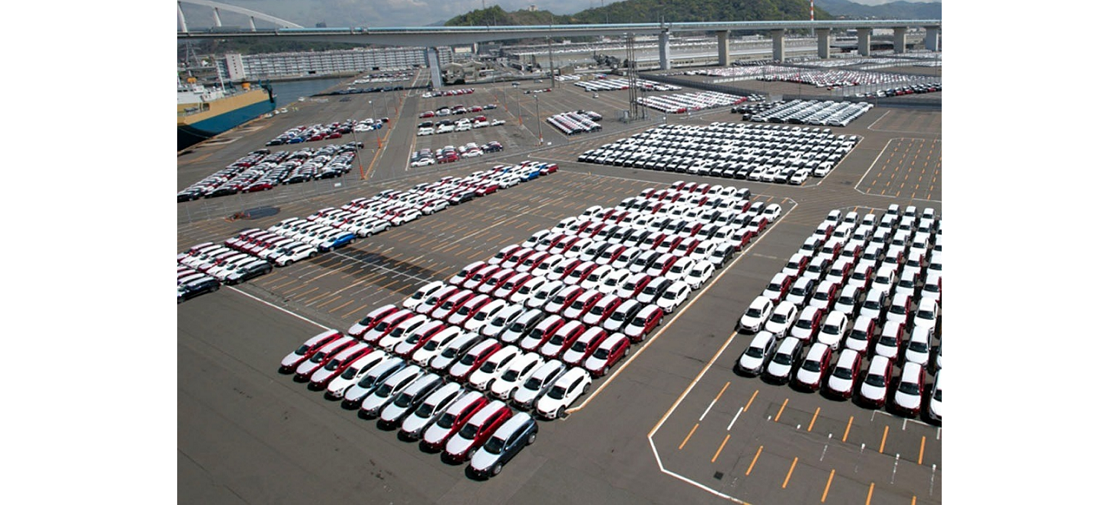
SG EV Vision and Roadmap
Singapore aims to reduce peak land transport emissions by 80% by or around mid-century. The electrification of vehicles alongside walking, cycling and taking public transport are key initiatives that will help us achieve this target.
In Singapore, where most of our power is generated from natural gas, we can be more sustainable by switching from internal combustion engine (ICE) vehicles to electric vehicles (EVs). An EV emits half the amount of CO2 as compared to a similar vehicle powered by ICE. If all our light vehicles run on electricity, we would reduce carbon emissions by 1.5 to 2 million tonnes, or about 4% of total national emissions.
Under the Singapore Green Plan 2030, we have a comprehensive EV Roadmap to drive EV adoption. As EV technology matures, we expect that the upfront cost of buying an EV and ICE vehicle to be similar by the mid-2020s. The accessibility of charging infrastructure is vital for encouraging EV adoption, and we have set a target of 60,000 EV charging points by 2030. This includes working with the private sector to achieve 40,000 charging points in public carparks and 20,000 charging points in private premises. Every HDB town will also be an EV-Ready Town, with approximately 2,000 carparks to be equipped with charging points by 2025.

Overview of EV Road Map
We are committed to greening Singapore’s public transport. LTA will electrify half of our bus fleet by 2030 and achieve a 100% cleaner energy bus fleet by 2040. We have started by deploying 60 electric buses and will replace 400 diesel buses with electric buses by 2025. With these 60 electric buses, the CO2 tailpipe emissions from buses will decrease by approximately 7,840 tons annually. This is equal to the annual CO2 emissions of 1,700 passenger cars. Our taxi fleet operators have also set targets to electrify their fleet, by committing at least half of the total taxi fleet to go electric by 2030.

National Electric Vehicle Centre (NEVC)
The National Electric Vehicle Centre spearheads the drive to promote wider EV adoption as part of Singapore’s vision to have all vehicles run on cleaner energy by 2040.
The NEVC is led by LTA and comprises of members from different agencies, working across the government and with industry stakeholders to achieve our mission to:
- Accelerate the deployment of a nationwide EV charging infrastructure
- Develop new EV regulations and standards
- Cultivate a robust EV ecosystem in Singapore to support the transition.
EV Road Map
To encourage EV adoption in Singapore, LTA will focus on four areas – vehicle taxes and incentives, regulations and standards, EV charger deployment and industry partnerships
Vehicle Taxes and Incentives
In view of the improvements in vehicular efficiency, LTA implemented a downward revision in road tax for electric cars from 1 January 2021.
We aim to make it more attractive to own and use electric cars through incentives and rebates such as the EV Early Adoption Incentive (EEAI) and Vehicular Emissions Scheme (VES) to narrow the upfront cost gap with ICE cars.
These incentives will lower the upfront costs of owning an electric car by up to $45,000.
Regulations and Standards

Administered by the Energy Market Authority (EMA), Technical Reference 25 (TR 25) is the set of technical standards and safety precautions that governs the EV Charging System in Singapore. To provide dedicated focus in this area, the regulatory role for EV Charging Systems will be transferred from EMA to LTA.
The TR 25 has undergone review by a joint public-private working group appointed by the Singapore Standards Council from September 2020 to January 2022. The new standard TR 25:2022 will replace the previous standard TR 25:2016 following its publication in February 2022. To give the industry time to transit to the latest requirements in TR 25:2022, there will be a six-month transition period before compliance with the maintenance and installation requirements in the revised TR 25:2022 becomes mandatory. Refer to Charging Standards for more information.
EV Charger Deployment
Public Carparks
Every HDB town will be EV-ready by 2025 with close to 2,000 of the HDB carparks to be fitted with charging points.
Private Premises
For non-landed private residences such as condominiums and private apartments, installing chargers can be a challenge as the number of residents who own EVs are likely to be small. To incentivise charger installation in these carparks, an EV Common Charger Grant has been introduced to kickstart the installation of shared charging infrastructure.
Motorists living in private residences can work with the property owner or Management Committee to get the necessary approvals to install EV chargers in the premise. Motorists living in landed properties who wish to procure an EV charger should engage Licensed Electrical Workers (LEW) and equipment specialists to install the EV charger at their property or approach EV Charging Operators for their services.
Currently, EV Charging Operators such as Shell, ComfortDelgro Engineering and SP Mobility are already providing charging services islandwide, in places such as petrol stations, shopping malls, office buildings and industrial estates.
Carparks in New Developments
We are continuously monitoring EV adoption and studying measures to ensure that new developments can provide sufficient electrical capacity for EV charging in their carparks. These new developments include upcoming HDB towns, commercial buildings and private residences such as condominiums.
Industry Partnerships
As Singapore embarks on a journey to electrify our land transport system, we welcome companies to house their activities in Singapore. This will be a good chance for companies to capitalise on opportunities in the region. In Singapore, companies can perform a range of functions, including product research and development (R&D), manufacturing and headquarter services.
Today, Singapore is home to an ecosystem of mobility companies from automotive OEMs such as Hyundai, mobility service providers such as Grab and Motional, and electronics and component suppliers such as Infineon, DuraPower, Borgwarner, Continental and Denso. Local companies such as TES and SMA also undertake lithium-ion battery recycling in Singapore, ensuring that valuable materials are recovered.
Our EV ecosystem is complemented by an established pool of public research institutes, particularly for battery-related R&D. Institutes such as ERI@N, SUTD and A*STAR undertake development of new lithium-ion battery structures and materials as well as next-generation batteries such as solid-state batteries.
Written by LTA. Please refer to LTA website for full information.
Learn More
Want to go electric and yet don’t want to buy a new vehicle?
Visit DBS Car Marketplace for popular and used electric cars for sale.
Browse now

